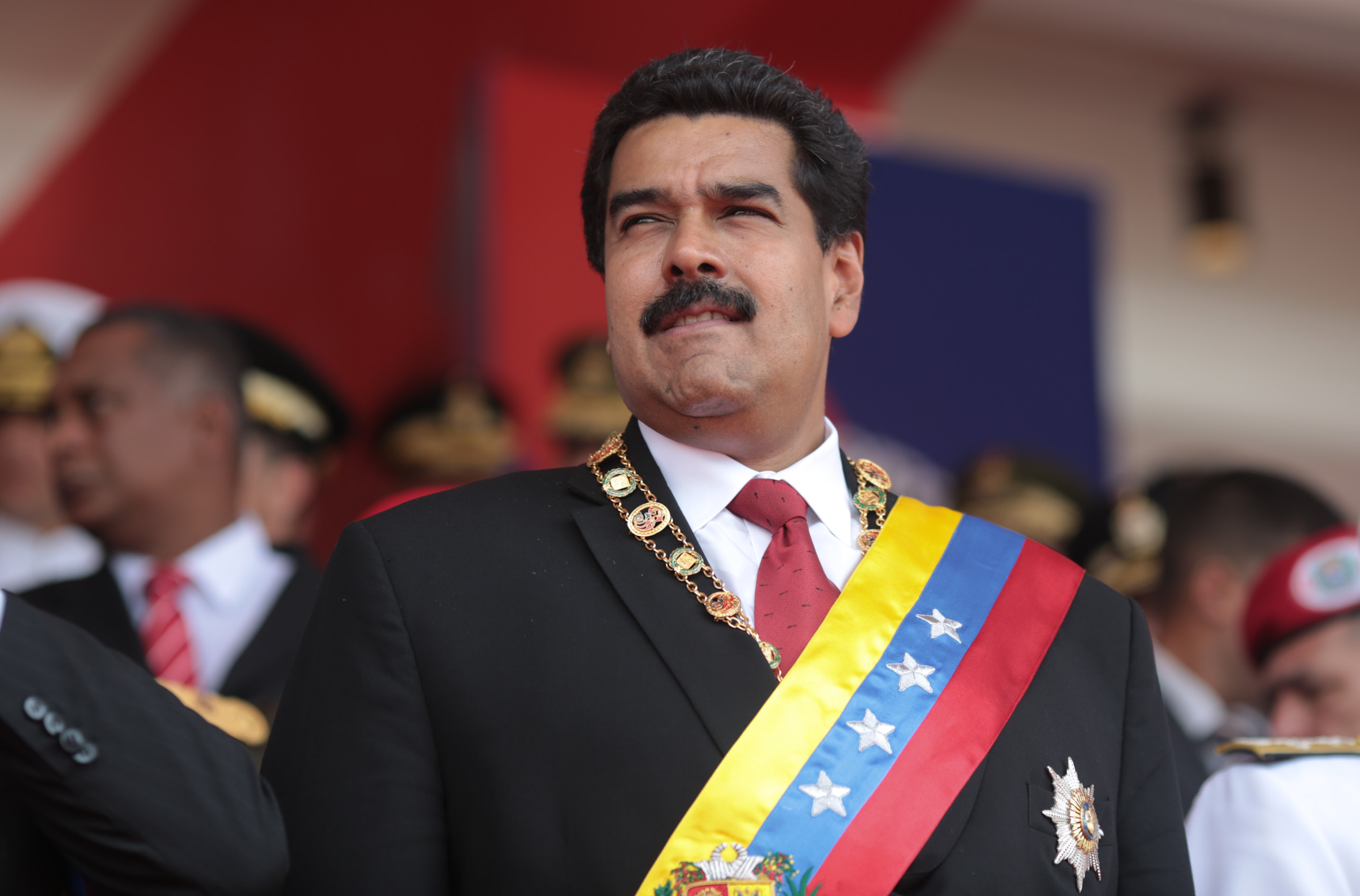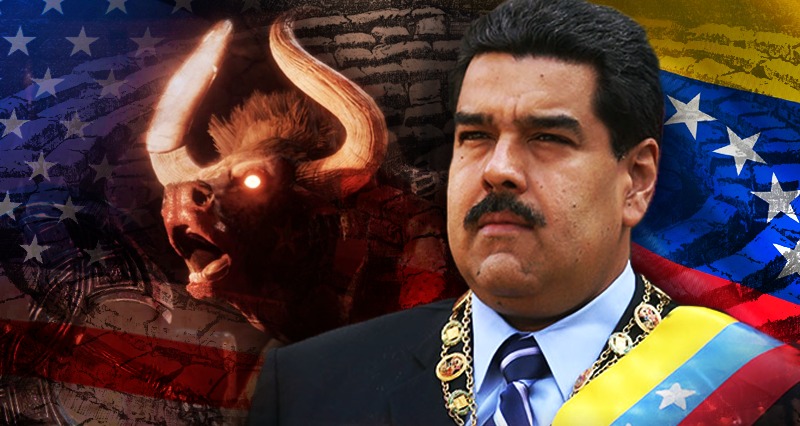If you are not familiar with ancient Greek mythology, the phrase “global Minotaur” may seem a bit cryptic. Nonetheless, all players in the international arena who do not agree to submit to economic exploitation have become potential prey for this Minotaur. After targeting Mohammed Morsi in Egypt and Erdoğan in Turkey, the authorities of Venezuela have now caught its attention.
The expression “global Minotaur” was first used by the Greek economist and politician Yanis Varoufakis to describe how the US became a siphon for world surplus capital and developed itself into a global hegemon.
In the myth of the minotaur, an Athenian king is punished by Poseidon for refusing to sacrifice a divine bull the god had given him. Poseidon made the king’s wife fall in love and mate with the bull, producing a half-man half-bull monster who could only survive by eating human flesh. The king was forced to sacrifice young Athenians to the Minotaur every so many years to stave off its anger.
Despite the fact that this myth refers to the ancient inhabitants of Athens, it is quite suitable for describing how for the past 70 years a monstrous and insatiably hungry global financial system has tried to colonize the entire world, demanding the sacrifice of foreign wealth and capital. Those that refuse to provide risk invoking the wrath of the gods.
This system is today unilaterally imposing an embargo on Iran, leading trade wars from China to Europe, and is now prepared to show its true face to the world again by forcibly opening the Venezuelan market along with access to the country’s natural resources.

Venezuela has plunged into the abyss of a political and economic crisis, with the Constituent and National Assembly vying for power and violence erupting in the streets. There is no doubt that this struggle has wet the appetites of those forces hungry for the Latin American nation’s vast oil resources.
Venezuela is deeply divided internally, both as a result of nationalist policies offensive to the country’s business elite and foreign economic sanctions which have devastated the poor. When these social divisions are coupled with the ineffectiveness of bureaucratic institutions, the scope of corruption and the concentration of economic power in the hands of the authorities, the result is destabilisation and chaos.
This economic and political turbulence creates a highly suitable environment for the United States, which requires asymmetric relations of power with governments in the region, as is the case in the Middle East with regard to Saudi Arabia and the Gulf states. The US convened an emergency meeting of the UN Security Council to discuss the situation, and preemptively recalled its diplomats at the American embassy in Caracas. Even before this most recent conflict began as a consequence of Maduro’s inauguration at the beginning of the year, American authorities had already organized multiple assassination attempts against the South American leader with the help of retired Venezuelan military members organized by the CIA.
More than 15 states have officially recognized the head of the National Assembly, Juan Bautista Guido as president of Venezuela, signaling that Washington’s allies are equally ready to pitch in to appease the global super-power.
However, China and Russia’s relationship with Venezuela remains extremely vexing to the United States, who refuses to tolerate the influence of any power in the hemisphere aside from theirs. Over the past 10 years, China has provided Venezuela with loans in various forms for a total of nearly $70 billion. China and Venezuela have also been developing a critical trade relationship in the oil, weapons, automotive equipment and machinery markets.
The United States is nonetheless most concerned about the actions of Russia, which is currently negotiating with Venezuela over establishing military bases in the country.
Statements by colonial powers recognizing the Venezuelan opposition and justifying their bid for power are completely unacceptable. As neighboring countries adopt similar positions the situation is likely to become increasingly unstable, which may have dire consequences for all of Latin America. It perhaps goes without mentioning that appeals to “democratic values,” are a rhetorical rather than actual motivation, since using bad leadership as a scapegoat to justify the imposition of foreign rule is a well-known tactic.
The El-Sisi government, which came to power in Egypt as a result of a US-backed coup under the pretext of Morsi’s alleged “unsuccessful economic policy”, despite the multibillion-dollar financial assistance from the Gulf countries, was forced to sell islands belonging to the country to stay afloat. Creating space for this to be tolerated on the social level required political arrests and torture on a scale so massive it wouldn’t fit into the reports of international human rights organizations.
In turn, France, which eagerly received Libyan leader Muammar Gaddafi in tents surrounded by camels on the Champs Elysées due to his willingness to utilize French banks, which spread the red carpet before the El-Sisi putsch because he bought French weapons with the money he earned from the blood of the Egyptian people… this same country swiftly recognized the leader of the Venezuelan opposition as president, as Maduro had declined to share his country’s resources with the colonial power.
Aside from relying on its foreign allies, the key to overcoming internal crisis and avoiding the traps placed in front of the Venezuelan leadership is for Maduro to institute dramatic consolidating policies and sharpen the effectiveness of the country’s bureaucratic mechanisms.
If we look at what happened in Turkey, for example, an attempted military coup organized by the United States resulted in no positive changes in terms of the development of their vision of democracy, and the country moved even further from the West’s economic sphere. The Justice and Development Party’s government held on to power through their decisive opposition to foreign influence and was then able to use their strengthened position to consolidate power and institute much-needed reforms. Venezuela might be able to do something similar, as Washington provides the necessary pretext to eliminate the internal opposition forces dividing and destabilizing the country.
We are on the threshold of efforts to form a new world order, where the insatiable global Minotaur will violently struggle to monopolize the remaining resources of all mankind. In order to achieve this goal, the monster will not disdain any action, it will not stop short of destroying the world if it deems it to be necessary. Therefore, all the powers opposing the beast must unite forces and build a solid alliance of resistance.

















Leave a Reply